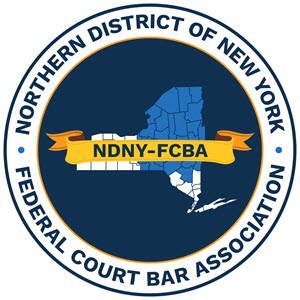By Eric Nordby
 Dear Colleagues,
Dear Colleagues,
Last month, I became aware of something that gave me pause. During a routine motion hearing, opposing counsel launched into what can only be described as a personal attack on his adversary’s character and competence. The judge quickly intervened, but the damage was done—not just to the tone of the proceedings, but to our collective reputation as officers of the court.
This incident reflects a troubling trend I’ve observed across both our federal and state practice. Whether it’s unnecessarily inflammatory language in briefs, discourteous behavior during depositions, or social media posts that blur the line between zealous advocacy and professional misconduct, we’re witnessing an erosion of the civility that has long distinguished federal practice.
I’m not naive about the pressures we face. Client demands are intensifying, stakes are higher, and the 24-hour news cycle amplifies every legal battle. The political polarization that dominates our national discourse inevitably seeps into our courtrooms. But these challenges don’t excuse us from our fundamental obligations as members of the federal bar.
Federal practice has always carried special responsibilities. We represent clients before Article III judges who enjoy life tenure precisely to insulate them—and our system of justice—from political pressures. Our federal courts handle matters of constitutional significance, complex regulatory disputes, and cases that often set precedent for the entire nation. The dignity of these proceedings reflects not just on individual practitioners, but on the rule of law itself.
What does civility mean in this context? It’s not about being weak or failing to zealously advocate for clients. Rather, it’s about recognizing that effective advocacy actually requires respect for opposing counsel, the court, and the process. Judges notice when lawyers treat each other professionally, and they respond accordingly. I’ve seen more cases won through measured, respectful advocacy than through bombast and personal attacks.
Consider the practical benefits of maintaining civility. When you develop a reputation for fairness and professionalism, opposing counsel is more likely to grant reasonable extensions, engage in productive settlement discussions, and work collaboratively on scheduling matters. Judges appreciate lawyers who can disagree without being disagreeable. Your clients benefit when their lawyer is seen as credible and trustworthy rather than as someone who cries wolf with every motion.
But civility serves purposes beyond tactical advantage. Federal courts are where our constitutional principles are tested and refined. When we conduct ourselves with dignity and respect, we honor the institution and strengthen public confidence in our justice system. When we don’t, we contribute to the erosion of trust in legal institutions that we’ve witnessed in recent years.
So what can we do? First, we can model the behavior we want to see. This means choosing our words carefully in briefs, avoiding unnecessary personal references, and focusing on legal arguments rather than character assessments. It means being prepared for hearings, showing up on time, and treating court staff with respect. It means acknowledging when opposing counsel makes a valid point and conceding issues that aren’t genuinely disputed.
Second, we can mentor younger lawyers in these principles. Too many new attorneys learn their courtroom demeanor from television or social media rather than from experienced practitioners who understand the nuances of federal practice. We have an obligation to show them that professionalism isn’t old-fashioned—it’s essential.
Third, our bar association must continue to provide forums for discussing these issues. Our training programs can and should include sessions on courtroom civility and professional responsibility. We can also continue to develop mentorship opportunities that pair experienced federal practitioners with newer attorneys.
Finally, we should remember that civility isn’t just about following rules—it’s about preserving something valuable. Federal practice represents the best of our legal tradition: rigorous analysis, thoughtful advocacy, and respect for the judicial process. When we practice with civility and professionalism, we honor that tradition and ensure it continues for future generations.
The challenges facing our profession and our democracy are real. But so is our capacity to meet them with dignity, respect, and unwavering commitment to the principles that make federal practice both challenging and rewarding.
I look forward to working with each of you to maintain the highest standards of our profession.
Respectfully yours,
Eric C. Nordby
President

